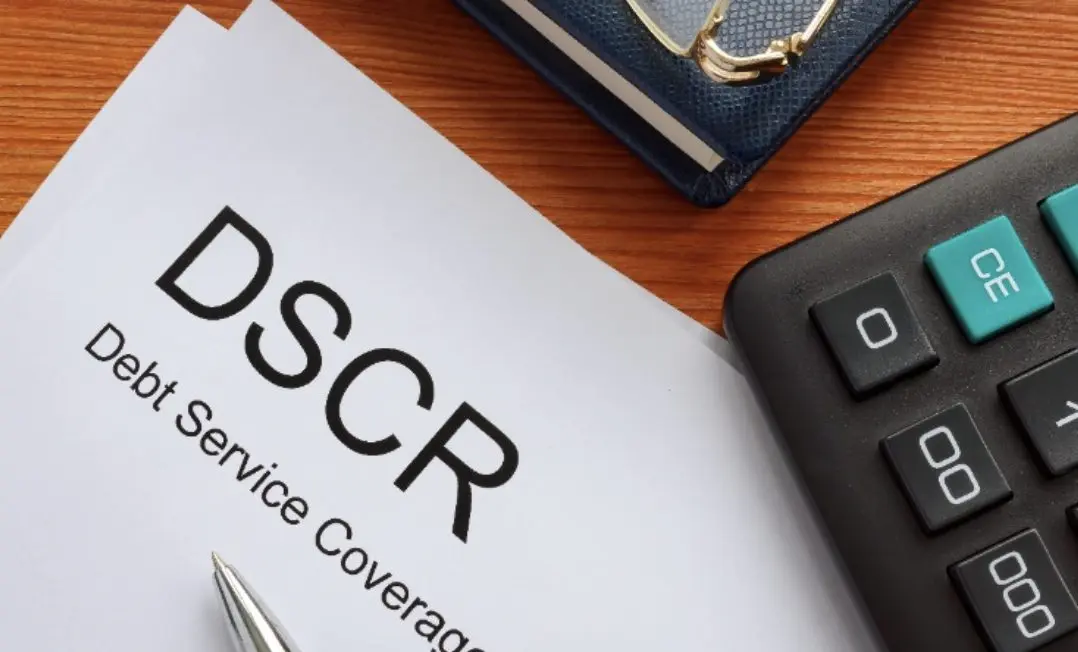A DSCR (Debt Service Coverage Ratio) loan is a type of commercial real estate financing that relies on the property’s income-generating potential rather than the borrower’s personal income or credit score. This loan is designed specifically for investors and landlords who want to purchase or refinance investment properties.
The key difference between a DSCR loan and a traditional mortgage is that the lender evaluates the property’s ability to cover the loan payments through its rental income. Instead of focusing on the borrower’s employment, income, and credit history, the lender primarily considers the property’s debt service coverage ratio, which is the ratio of the property’s annual net operating income (NOI) to its annual mortgage payment.
DSCR loans are particularly beneficial for real estate investors who may have multiple properties or complex income structures that don’t fit the traditional lending criteria. They allow investors to leverage the income-generating potential of their properties to acquire more investment properties or refinance existing ones, without being heavily dependent on their personal finances.
Additionally, DSCR loans often have more flexible qualification requirements, making them accessible to borrowers with lower credit scores or those who are self-employed or have non-traditional income sources. They also offer the advantage of potentially higher loan amounts and longer loan terms compared to conventional mortgages.
Eligibility for DSCR Loans in Akron
To qualify for a DSCR loan in Akron, borrowers typically need to meet the following requirements:
Borrower Requirements:
- Minimum credit score of 620-640, although some lenders may require higher scores
- Adequate cash reserves (often 6-12 months’ worth of mortgage payments)
- Experienced real estate investors with a proven track record
Property Types Eligible:
- Single-family residential properties
- Multi-unit residential properties (2-4 units)
- Small apartment complexes
- Mixed-use properties with a residential component
Credit Score and Income Requirements:
DSCR loans place more emphasis on the property’s income-generating potential rather than the borrower’s personal income. However, lenders may still consider the borrower’s credit score and overall financial profile. Generally, a credit score above 620 is required, but higher scores can lead to better terms. Borrowers must also demonstrate sufficient cash reserves and assets to support the loan.
Debt Service Coverage Ratio (DSCR) Calculation
The Debt Service Coverage Ratio (DSCR) is a crucial metric used by lenders to evaluate the ability of a borrower to repay a loan based on the expected cash flow from the property. The DSCR calculation compares the annual net operating income (NOI) of a property to the annual debt service (mortgage payments, including principal and interest).
The formula for calculating DSCR is:
DSCR = Annual Net Operating Income / Annual Debt Service
Net Operating Income (NOI) is calculated by subtracting the operating expenses from the gross rental income of the property. Annual Debt Service is the total amount of principal and interest payments due on the loan over a year.
A DSCR of 1.0 indicates that the property’s NOI is just enough to cover the debt service payments. Most lenders require a DSCR of at least 1.25 or higher for DSCR loan approval, providing a cushion to ensure that the borrower can comfortably make the loan payments even if the property experiences vacancies or unexpected expenses.
The higher the DSCR, the more cash flow the property generates relative to its debt obligations, which reduces the risk for the lender. A lower DSCR may indicate that the property’s income is insufficient to cover the loan payments, making it a riskier investment for the lender.
Advantages of DSCR Loans
Debt Service Coverage Ratio (DSCR) loans offer several advantages that make them an attractive option for real estate investors and property owners in Akron. One of the primary benefits is flexibility. Unlike traditional mortgage loans, DSCR loans are primarily based on the property’s income-generating potential rather than the borrower’s personal income or employment history. This flexibility allows investors to qualify for financing more easily, even if they have complex or unconventional income sources.
Another significant advantage of DSCR loans is the easier qualification process. Lenders focus on the property’s ability to generate sufficient rental income to cover the mortgage payments, rather than scrutinizing the borrower’s credit score, employment history, or personal income. This makes DSCR loans an excellent choice for self-employed individuals, real estate investors, and those with less-than-perfect credit profiles.
DSCR loans are particularly beneficial for financing investment properties. Traditional mortgage lenders often have strict guidelines and limitations on the number of investment properties an individual can finance. With DSCR loans, investors can potentially acquire and finance multiple investment properties, allowing for portfolio growth and diversification.
Furthermore, DSCR loans can facilitate portfolio growth by enabling investors to leverage the income generated from their existing rental properties to qualify for additional loans. This streamlined process can accelerate the acquisition of new investment properties, potentially leading to increased cash flow and long-term wealth creation.
Risks and Drawbacks of DSCR Loans
While DSCR loans offer several advantages, they also come with certain risks and drawbacks that borrowers should be aware of:
Higher Interest Rates: DSCR loans typically carry higher interest rates compared to traditional mortgage loans. Lenders view these loans as riskier investments, and therefore, they charge a premium to compensate for the increased risk.
Shorter Loan Terms: DSCR loans often have shorter repayment periods, typically ranging from 5 to 30 years. This means that borrowers will need to make larger monthly payments to pay off the loan within the specified timeframe.
Stricter Underwriting: Lenders scrutinize DSCR loan applications more thoroughly than traditional mortgage applications. They will closely examine the property’s income-generating potential, the borrower’s credit history, and the overall risk profile of the investment.
Balloon Payments: Some DSCR loans may require a balloon payment at the end of the loan term. A balloon payment is a lump sum payment that covers the remaining principal balance of the loan. This can be a significant financial burden for borrowers who may need to refinance or sell the property to cover the balloon payment.
It’s essential for borrowers to carefully weigh the risks and drawbacks against the potential benefits of DSCR loans. Working with experienced lenders and real estate professionals can help mitigate these risks and ensure a well-informed decision-making process.
Lenders Offering DSCR Loans in Akron
When it comes to securing a DSCR loan in Akron, borrowers have several options to explore. Here are some of the prominent lenders offering DSCR loans in the area:
Banks
- Huntington Bank
- PNC Bank
- KeyBank
- Fifth Third Bank
- FirstMerit Bank
Many traditional banks in Akron have started offering DSCR loan programs to cater to the growing demand from real estate investors and property owners.
Credit Unions
- Akron Metro Credit Union
- Summa Credit Union
- Westfield Bank
- Emerald Valley Credit Union
Credit unions in Akron can be a viable option for DSCR loans, often providing competitive rates and personalized service.
Specialized Lenders
- LendingOne
- Visio Lending
- Lendzy
- CommLoan
- CapitalFund
These specialized lenders focus exclusively on DSCR loans and have tailored their products to meet the unique needs of real estate investors and landlords in the Akron market.
It’s essential to shop around and compare offers from multiple lenders to find the best terms, interest rates, and loan structures that align with your investment goals and financial situation.
DSCR Loan Application Process
The application process for a DSCR loan in Akron typically involves the following steps and documentation requirements:
-
Loan Application: Complete a detailed loan application form, providing information about the property, its current and projected income, your experience as an investor, and your financial situation.
-
Property Documentation: Submit documentation related to the subject property, including the purchase contract (if applicable), rent rolls, lease agreements, operating statements, and any relevant inspection reports.
-
Income Documentation: Provide evidence of the property’s income, such as rent rolls, lease agreements, and income tax returns (if the property is already owned).
-
Financial Documentation: Furnish personal financial statements, including bank statements, tax returns, and proof of assets and liabilities.
-
Credit Check: The lender will perform a credit check to assess your creditworthiness and financial responsibility.
-
Property Appraisal: An appraisal of the property will be conducted to determine its market value and ensure that it meets the lender’s underwriting criteria.
-
DSCR Calculation: The lender will calculate the property’s DSCR based on the provided income documentation and the proposed loan terms.
-
Underwriting Review: The lender’s underwriting team will thoroughly review the application, documentation, and DSCR calculation to assess the risk and determine loan approval.
-
Conditional Approval: If approved, the lender will issue a conditional approval letter, outlining the loan terms, conditions, and any additional requirements.
-
Final Approval and Closing: Once all conditions are met, the lender will issue final approval, and the loan can proceed to closing.
The timeline for approval can vary depending on the lender, the complexity of the loan, and the completeness of the documentation provided. Generally, the process can take several weeks to a few months from initial application to final approval and closing.
Interest Rates and Fees for DSCR Loans
Interest rates for DSCR loans typically range from 6% to 10%, depending on the lender, loan amount, property type, and borrower’s credit profile. These rates are generally higher than traditional mortgage rates due to the increased risk associated with investment properties and the lender’s reliance on the property’s income rather than the borrower’s personal income.
Origination fees for DSCR loans can vary widely, but they typically range from 1% to 3% of the loan amount. These fees cover the lender’s costs for processing and underwriting the loan.
Closing costs for DSCR loans are similar to those for traditional mortgages, including appraisal fees, title insurance, and other third-party expenses. Borrowers can expect to pay between 2% and 5% of the loan amount in closing costs.
Many DSCR lenders also charge prepayment penalties if the loan is paid off early, typically within the first few years of the loan term. These penalties can range from a fixed percentage of the outstanding balance (e.g., 3%) to a declining scale based on the remaining loan term.
It’s important to carefully review and understand all fees and costs associated with a DSCR loan before committing, as these can significantly impact the overall cost of the loan and the potential return on investment.
Using DSCR Loans for Investment Properties
DSCR loans can be a powerful financing tool for real estate investors looking to acquire rental properties, flip houses, or invest in multifamily units. These loans are particularly attractive because they are based on the property’s potential rental income rather than the borrower’s personal income or employment situation.
Rental Properties
One of the primary uses of DSCR loans is to finance the purchase of rental properties. Investors can leverage these loans to acquire single-family homes, duplexes, or small apartment buildings with the intention of generating rental income. The lender will evaluate the property’s projected rental income and calculate the DSCR to determine if the cash flow is sufficient to cover the mortgage payments and other associated expenses.
House Flipping
DSCR loans can also be utilized for house flipping projects. Investors can secure financing to purchase a distressed property, renovate it, and then sell it for a profit. The lender will consider the after-repair value (ARV) of the property and the potential sales price to determine the DSCR and approve the loan.
Multifamily Units
Investors interested in acquiring larger multifamily properties, such as apartment complexes or condominiums, can benefit from DSCR loans. These loans allow investors to finance the purchase of income-producing properties based on the projected rental income from multiple units, rather than relying solely on their personal income.
When using DSCR loans for investment properties, it’s crucial to conduct thorough market research, analyze the potential cash flow, and have a solid investment strategy in place. Investors should also be prepared to provide detailed documentation, including rent rolls, lease agreements, and property management plans, to demonstrate the viability of the investment and the ability to service the loan.
DSCR Loan Refinancing Options
Refinancing a DSCR loan can be an attractive option for real estate investors looking to take advantage of changing market conditions or their changing financial circumstances. Here are some common scenarios when refinancing a DSCR loan may be beneficial:
When Interest Rates Drop: If interest rates have fallen since you initially took out your DSCR loan, refinancing can help you secure a lower rate and reduce your monthly payments, potentially saving you thousands of dollars over the life of the loan.
To Access Equity: If your investment property has appreciated in value, you may be able to access some of that equity through a cash-out refinance. This can provide you with funds for additional investments, renovations, or other financial needs.
To Adjust Loan Terms: Refinancing can allow you to adjust the loan term, either extending it to lower your monthly payments or shortening it to pay off the loan faster.
The process for refinancing a DSCR loan is similar to the initial loan application process. You’ll need to provide updated financial documentation, including income statements, tax returns, and property appraisals. Lenders will also reevaluate your debt service coverage ratio to ensure you can comfortably make the new loan payments.
Cash-out refinancing is a popular option for DSCR loan holders. With this strategy, you refinance your existing loan for a higher amount than you currently owe, allowing you to pocket the difference in cash. This can be a useful way to access equity in your investment property without having to sell it outright.
However, it’s important to carefully consider the costs associated with refinancing, including closing costs, origination fees, and potentially higher interest rates. Make sure the potential savings or benefits outweigh these expenses before proceeding with a refinance.
DSCR Loan Case Studies and Success Stories
The Smith Family’s Journey
The Smith family had been looking to diversify their investment portfolio and build long-term wealth through real estate. After attending a local seminar on investment strategies, they learned about the potential of DSCR loans for acquiring rental properties without the stringent income requirements of traditional mortgages.
Excited by the opportunity, the Smiths worked with a local lender specializing in DSCR loans and secured financing for their first investment property – a three-bedroom townhome in a desirable neighborhood in Akron. Despite having limited income documentation, their strong credit scores and the property’s projected rental income met the lender’s DSCR requirements.
While the process wasn’t without its challenges, such as navigating the paperwork and finding a reliable property management company, the Smiths persevered. Within six months, they had their first tenant in place, and the rental income covered the mortgage payment and associated expenses with room to spare.
Encouraged by their initial success, the Smiths continued to leverage DSCR loans to grow their portfolio, acquiring two more properties within the next two years. Their real estate investments have not only provided a steady stream of passive income but have also appreciated in value, building substantial equity for their family’s future.
Resources for DSCR Loan Education and Support
For those interested in learning more about DSCR loans and staying up-to-date with the latest developments in this lending space, there are several resources available both locally and online.
Local Seminars and Workshops
Attending seminars and workshops hosted by local real estate investment associations or lenders can be a great way to gain insights from industry experts and connect with other investors. These events often cover topics such as DSCR loan qualifications, application processes, and strategies for maximizing returns on investment properties.
Online Courses and Webinars
Several online platforms offer courses and webinars specifically focused on DSCR loans. These resources can be particularly useful for those who prefer self-paced learning or have busy schedules. Instructors often include experienced real estate investors, lenders, and financial advisors who can provide valuable perspectives on DSCR lending.
Books and Guides
While DSCR loans may not be the primary focus, many books and guides on real estate investing and financing touch on this topic. These resources can help investors understand how DSCR loans fit into the broader landscape of investment strategies and financing options.



